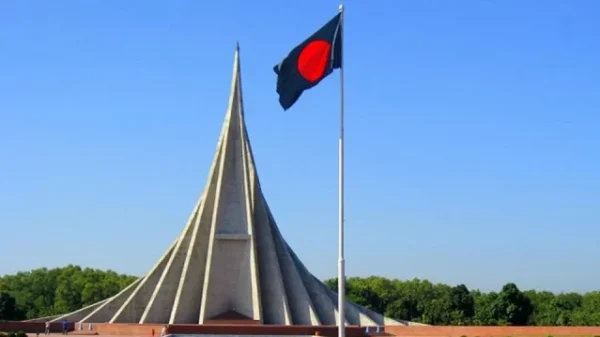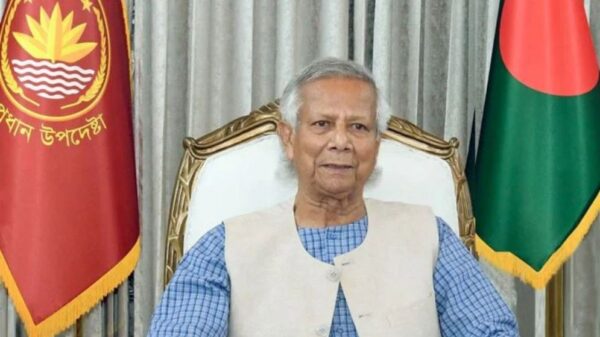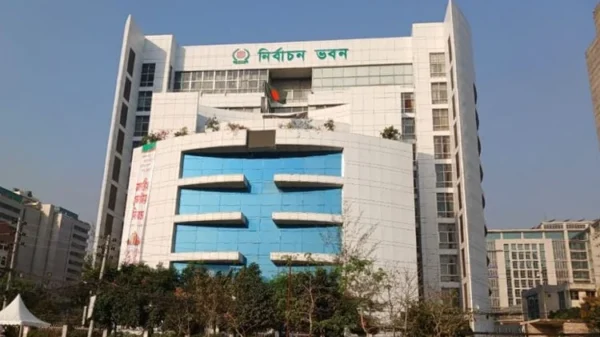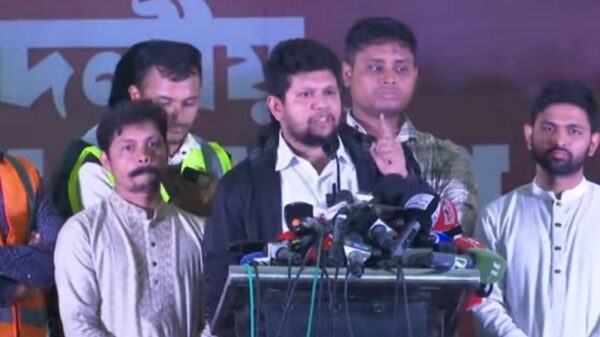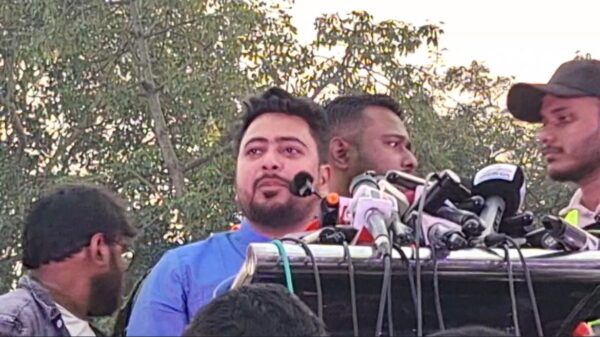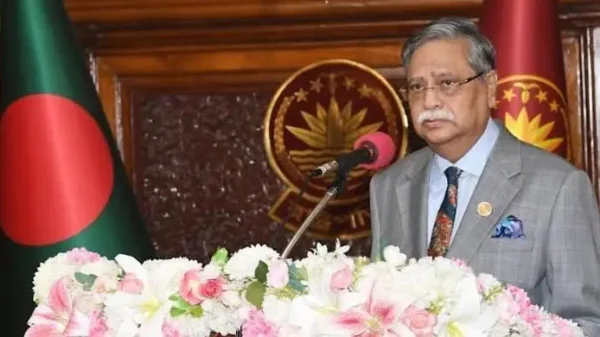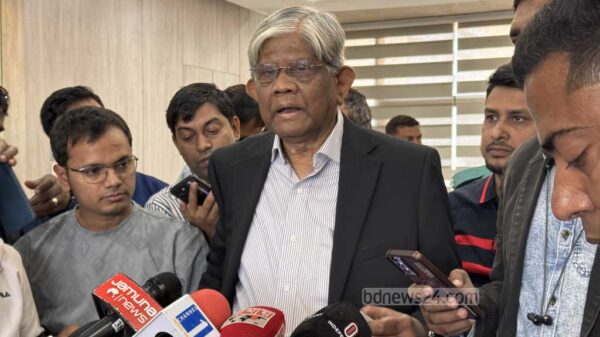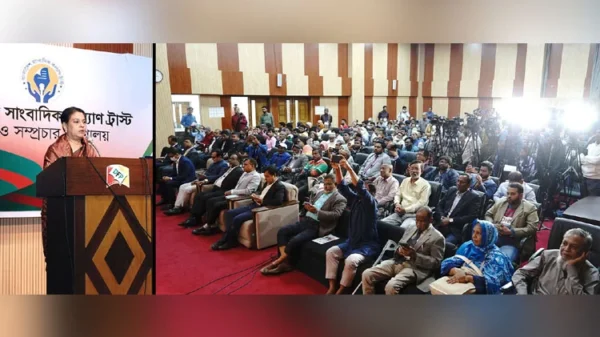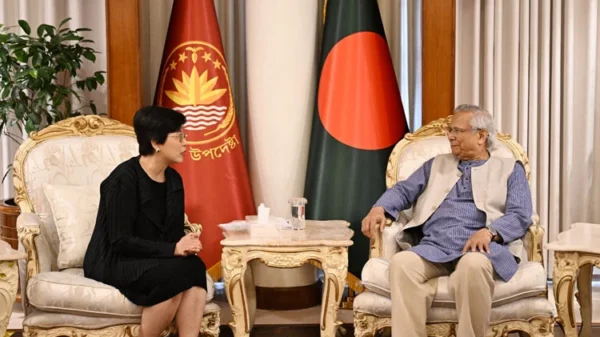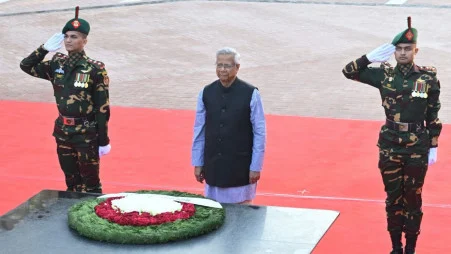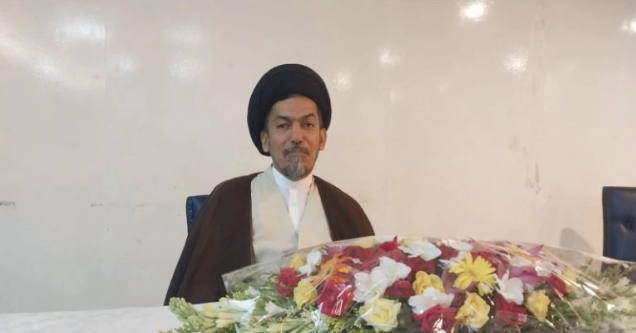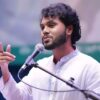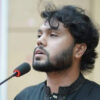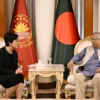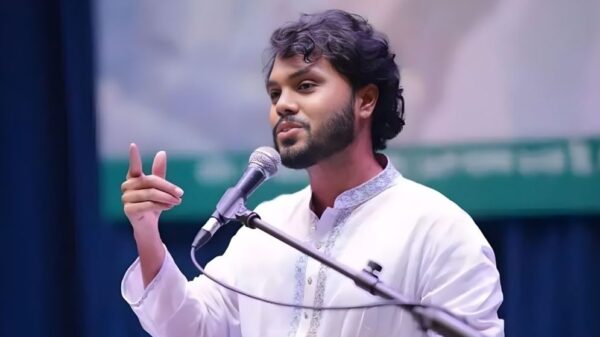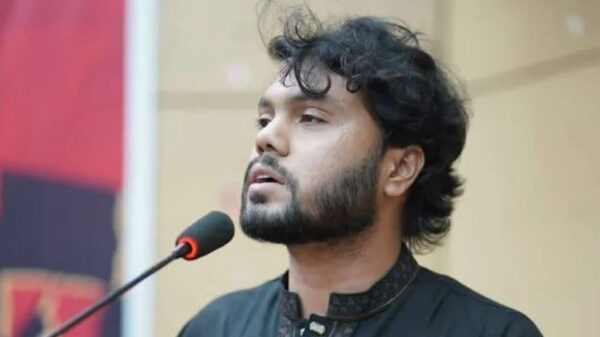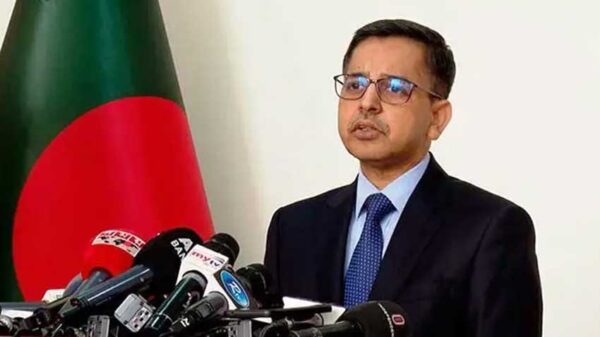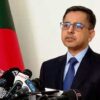Staff Reporter:
A visiting Iranian scholar has highly appreciated Prime Minister Sheikh Hasina’s bold position against the genocide in Gaza and for standing beside the people of Palestine, noting that Muslim countries should have a united voice against Israeli atrocities.
“She (PM Hasina) condemned Israel for the genocide… Alhamdulillah, we also see in Bangladesh many universities and many scholars participate in the protests… So, it shows a very bright future for us,” Iranian scholar Prof Dr Sayed Mahdi Mousavi told UNB before a discussion in a city hotel on Saturday evening.
Prof Mousavi, Chairman of the University of Religions and Denominations of Iran, said he believes that all Muslims and all the nations will be united against the genocide and crimes committed by Israel.
Highlighting the importance of the Muslim Ummah, he said it is very strange that some Muslim countries are not doing anything against this genocide in Palestine.
The UN General Assembly voted by a wide margin on Friday to grant new “rights and privileges” to Palestine and called on the Security Council to reconsider Palestine’s request to become the 194th member of the United Nations.
The world body approved the Arab and Palestine-sponsored resolution by a vote of 143-9 with 25 abstentions. The United States voted against it, along with Israel, Argentina, Czechia, Hungary, Micronesia, Nauru, Palau and Papua New Guinea.
The vote reflected the wide global support for full membership of Palestine in the United Nations, with many countries expressing outrage at the escalating death toll in Gaza and fears of a major Israeli offensive in Rafah, a southern city where about 1.3 million Palestinians have sought refuge. It also demonstrated growing support for the Palestinians.
Talking about Bangladesh economy, the Iranian scholar said they saw a rapid development in the country under the leadership of Prime Minister Sheikh Hasina.
“Bangladesh is one of the top countries in terms of economic progress. It will emerge as one of the most important economies in the world. We believe that we should increase economic relations between Bangladesh and Iran. There are rooms for enhancing economic engagements utilizing the high capacity that the two countries have,” said the Iranian scholar.
He said it is nice to see so many bridges and roads with better connectivity and the expressway from the airport is something very significant to give a positive impression about the country’s ongoing development efforts.
Responding to a question on the Rohingya crisis, Prof Mousavi said he believes that it is not a local or national crisis but an international crisis. “All the countries, especially Muslim countries, should come forward and think about this problem.”
The scholar, who will visit the Rohingya camp to distribute essential commodities, said that during his last visit, he saw the refugees have a lot of problems.
“We should be very thankful to Bangladesh because it has accepted so many refugees from Myanmar despite its own challenges,” he said.
Unfortunately, Prof Mousavi said, they see that support for the refugees is decreasing.
“All the Muslim countries should take a decision about the refugees from Myanmar. Bangladesh cannot alone take the decision. Because it is an international crisis, it is not a crisis created by Bangladesh,” he said.
Describing the purpose of his visit, the Iranian scholar said that relations between the two Muslim-majority countries are not at a higher level despite having much potential. “We have a lot of local issues, which can bring us close to each other.”
“I have come here to have some meetings with scholars, visit institutions and meet journalists to talk about how we can increase interactions and make the unity among Muslim countries stronger. And we believe Bangladesh can play a very important role in unifying the Muslim community,” Prof Mousavi said.


